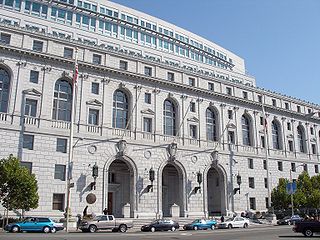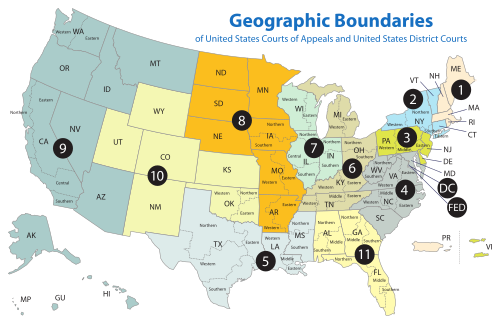Related Research Articles

Sandra Day O'Connor was an American attorney, politician, and jurist who served as an associate justice of the Supreme Court of the United States from 1981 to 2006. Nominated by President Ronald Reagan, O'Connor was the first woman to serve as a U.S. Supreme Court justice. A moderate conservative, she was considered a swing vote. Before O'Connor's tenure on the Court, she was an Arizona state judge and earlier an elected legislator in Arizona, serving as the first female majority leader of a state senate as the Republican leader in the Arizona Senate. Upon her nomination to the Court, O'Connor was confirmed unanimously by the United States Senate.
The Supreme Court of the State of New York is the trial-level court of general jurisdiction in the judiciary of New York. It is vested with unlimited civil and criminal jurisdiction, although in many counties outside New York City it acts primarily as a court of civil jurisdiction, with most criminal matters handled in County Court.

The Supreme Court of Texas is the court of last resort for civil matters in the U.S. state of Texas. A different court, the Texas Court of Criminal Appeals, is the court of last resort in criminal matters.

The Sandra Day O'Connor College of Law is the law school at Arizona State University in Phoenix, Arizona. The school is located in the Beus Center for Law and Society on ASU's downtown Phoenix campus. Created in 1965 as the Arizona State University College of Law upon recommendation of the Arizona Board of Regents, with the first classes held in the fall of 1967. The school has held American Bar Association accreditation since 1969 and is a member of the Order of the Coif. The school is also a member of the Association of American Law Schools. In 2006, the law school was renamed in honor of Phoenix resident, Stanford graduate, and retired Supreme Court Justice Sandra Day O'Connor.
The Arizona Court of Appeals is the intermediate appellate court for the state of Arizona. It is divided into two divisions, with a total of twenty-eight judges on the court: nineteen in Division 1, based in Phoenix, and nine in Division 2, based in Tucson.

The government of Arizona consists of the executive, judiciary, and legislature of Arizona as established by the Arizona Constitution. The executive is composed of the Governor, several other statewide elected officials, and the Governor's cabinet. The Arizona Legislature consists of the House of Representatives and Senate. The judiciary is composed of the Arizona Supreme Court and lower courts. There is also local government, consisting of counties, municipalities and special districts.

Courts of California include:
Courts of Kentucky include:
Courts of Mississippi include:

Courts of Oregon include:
Courts of Texas include:

Courts of Utah include:
Courts of Wisconsin include:
Arizona Free Enterprise Club's Freedom Club PAC v. Bennett, 564 U.S. 721 (2011), is a decision by the Supreme Court of the United States.
Arizona v. United States, 567 U.S. 387 (2012), was a United States Supreme Court case involving Arizona's SB 1070, a state law intended to increase the powers of local law enforcement that wished to enforce federal immigration laws. The issue is whether the law usurps the federal government's authority to regulate immigration laws and enforcement. The Court ruled that sections 3, 5(C), and 6 of S. B. 1070 were preempted by federal law but left other parts of the law intact, including a provision that allowed law enforcement to investigate a person's immigration status.

Three justices of the seven-member North Carolina Supreme Court and five judges of the 15-member North Carolina Court of Appeals were elected by North Carolina voters on November 3, 2020, concurrently with other state elections. Terms for seats on each court are eight years. These elections were conducted on a partisan basis.
Before Election Day of the 2020 United States presidential election, lawsuits related to the voting process were filed in various states. Many of these lawsuits were related to measures taken by state legislatures and election officials in response to the COVID-19 pandemic.
References
- ↑ "Arizona Supreme Court". Arizona Supreme Court. Retrieved 2014-04-28.
- 1 2 "Court of Appeals".
- ↑ "General Information About the Justice Courts". Superiorcourt.maricopa.gov. Archived from the original on 2008-12-20. Retrieved 2008-12-17.
- ↑ "U.S. District Court of Arizona". Azd.uscourts.gov. Retrieved 2008-12-17.
